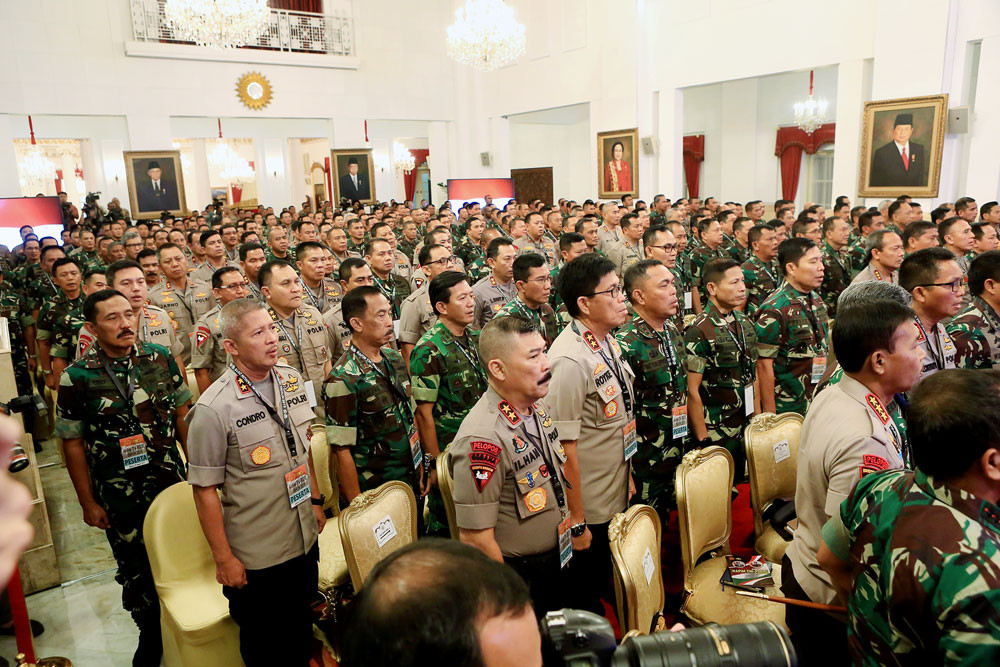Popular Reads
Top Results
Can't find what you're looking for?
View all search resultsPopular Reads
Top Results
Can't find what you're looking for?
View all search resultsRestless colonels
The amendment, if passed, would open Pandora’s Box, practically resurrecting the ghost of dwifungsi.
Change text size
Gift Premium Articles
to Anyone
F
or many years, noticeable imperfections in the Indonesian Military’s (TNI) personnel management system have gone unresolved. Now, the government is offering a remedy that could do more harm than good and throw the country back into the old days.
After opening a joint TNI-National Police leaders’ meeting last Tuesday, President Joko “Jokowi” Widodo announced plans to restructure the TNI, with the aim of addressing a surplus of hundreds of middle-ranking officers.
TNI commander Air Chief Marshal Hadi Tjahjanto said new 60 posts would become available for brigadiers, majors and lieutenant generals, with some colonels standing a chance of filling the vacancies through a promotion. In addition, officers will have the opportunity to take up positions in the civil service. And, in an apparent move to appease thousands of other soldiers, enlisted personnel and noncommissioned officers will have their service extended by five years to 58.
These plans will require an amendment of the 2004 TNI Law. The law permits military officers to hold positions in certain non-military institutions, such as the Office of the Coordinating Political, Legal and Security Affairs Minister and the National Search and Rescue Agency, by taking into account their military expertise.
But revising the TNI Law to justify the recruitment of active military officers into the civilian bureaucracy invites serious risks, if not threats. First and foremost, it has sent shockwaves through the civilian bureaucracy. Unless the officers retire and follow the fair recruitment mechanism stipulated in the 2014 Civil Service Law, the policy would break the hearts of many high achieving civil servants.
Second, and more crucially, such an amendment would counter the spirit of TNI reform, which envisions a strong and professional defense force. The reform mandated the TNI to focus on defense, relinquishing its long-preserved dwifungsi (dual function) doctrine of the New Order. The amendment, if passed, would open Pandora’s Box, practically resurrecting the ghost of dwifungsi.
To address the problem of surplus colonels, an organizational restructuring of the TNI has been underway since 2016, as evident in the formation of two new regional military commands (Kodam) and the upgrading of several sub-provincial military command posts (Korem), now led by brigadier generals. But these efforts seem to have been inadequate to absorb enough officers, who have grown quite fast in number as a result of the TNI’s policy to recruit many more Military Academy cadets that began about 20 years ago. Back then, the fall of the New Order and the reform of the TNI was perhaps unimaginable.
The issue of idle soldiers indeed needs an immediate solution, as restless colonels have changed the history of nations. But the issue does not merit a quick fix, let alone short-sighted, politically motivated policy.
The government should keep the plans on hold and listen to as many wide-ranging views as possible, either from lawmakers, experts and civil society groups. A wrong move can sacrifice TNI reforms, which have yet to be completed, and our hard-won democracy.










